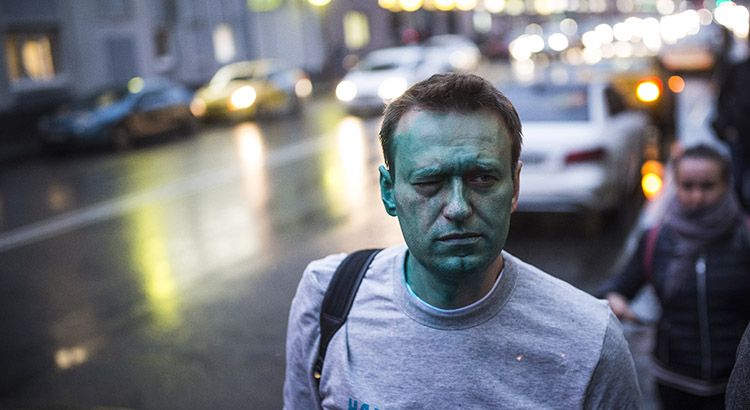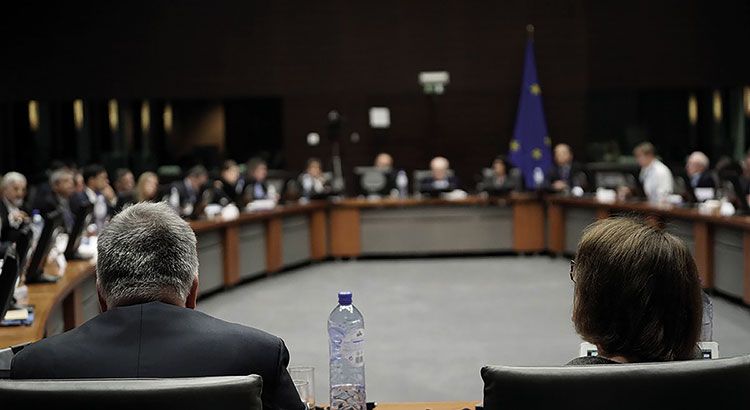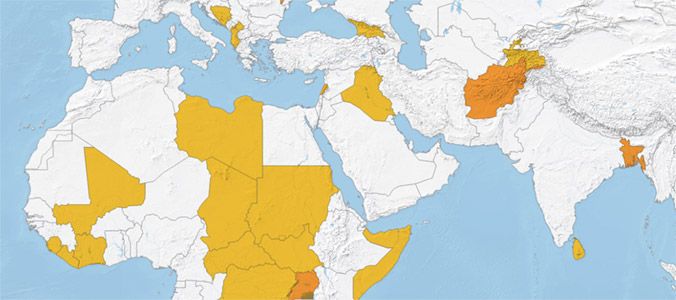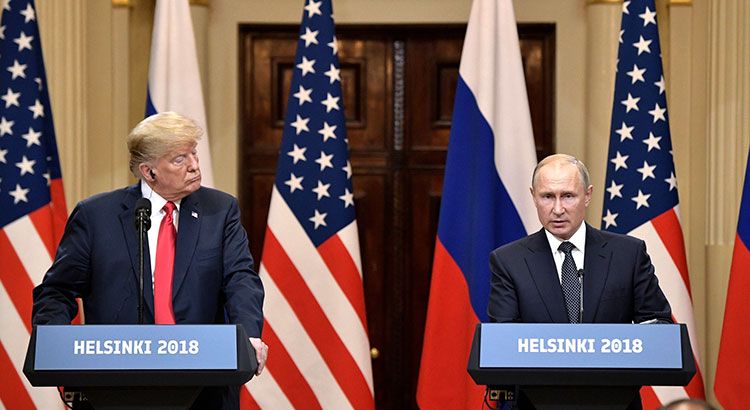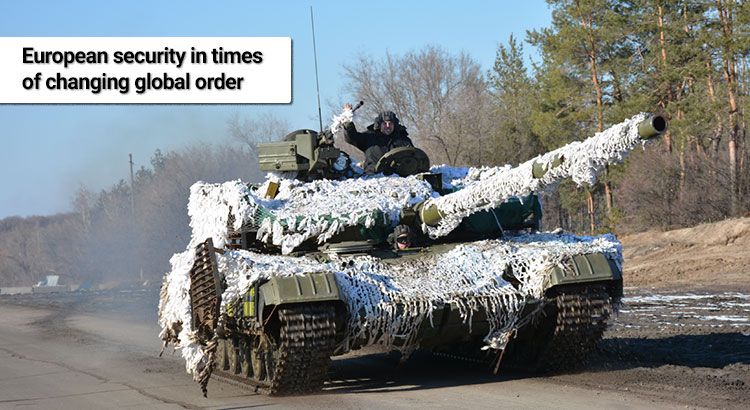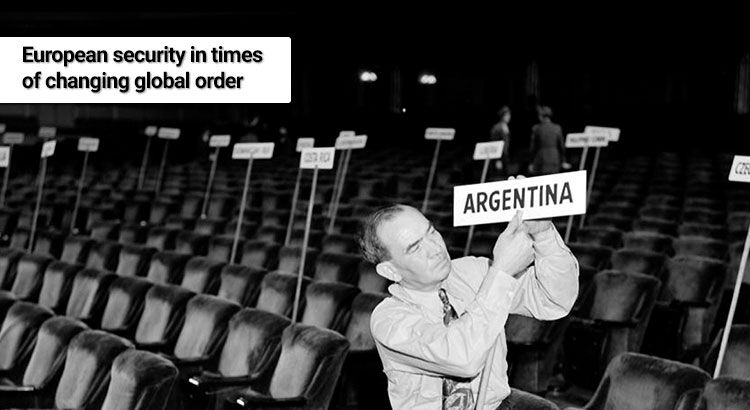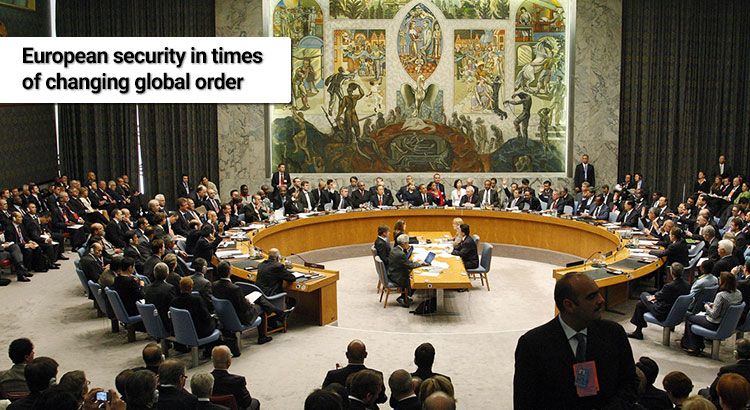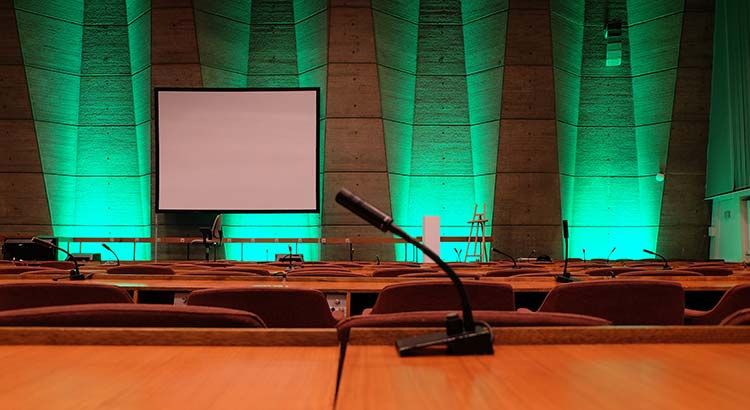Schlagwort: Liberale Weltordnung
Obwohl noch immer viele Fragen offen bleiben, wer genau und aus welchem Grund Alexey Nawalny vergiftet hat, wird bereits deutlich, dass der Fall Nawalny gravierende Folgen für die russisch-westlichen Beziehungen haben wird. Neue Sanktionen oder der Baustopp der Nordstream-II Pipeline – der Westen verfügt in seiner möglichen Gegenreaktion über eine Vielzahl von Optionen. Doch stellt sich durchaus die Frage, ob das System Putins sich überhaupt durch Druck vom Außen noch beeinflussen lässt oder dadurch nur noch verhärtet wird. Diese neue Eskalationsstufe im Konflikt mit Russland kann unbeabsichtigte Konsequenzen nach sich ziehen, was den Westen jedoch nicht davon abhalten sollte, klar und entschieden zu reagieren.
Why study democracy promotion negotiation?
Democracy promotion is a fundamentally interactive practice: it involves a complex interplay of external and local actors. In perceiving their goals, democracy promoters interact with various kinds of “local actors” and must increasingly confront the fact that local interests not only have to be taken seriously and integrated, but that a successful democratization process requires more than template models imposed from the outside. It requires discussion, dialogue and negotiation – and here comes the problem: Although most scholars acknowledge the interactive nature of democracy promotion, the interaction process itself is largely treated as a “black box” and negotiation dynamics have been somewhat unexplored. This is about to change.
Humanitäre militärische Interventionen erforschen: ein Datensatz schafft die Grundlage
Sogenannte humanitäre militärische Interventionen oder Interventionen im Rahmen der internationalen Schutzverantwortung sind heiß umstritten, doch hinkt die Erforschung dieser Einsätze den politischen Kontroversen hinterher. Zwar füllen völkerrechtliche und friedensethische Beiträge viele Regalmeter, und auch die zahlreichen detaillierten Einzelfallstudien lassen sich nicht mehr überschauen. Dennoch ist bislang weitgehend unbekannt geblieben, wie sich militärische Interventionen mit einer erklärten humanitären Absicht auf die Situation im Zielland auswirken. Das liegt am Mangel an vergleichenden Arbeiten. Ein neuer Datensatz zu den humanitären militärischen Interventionen nach 1945 schafft die Grundlage für solche Studien. Eine interaktive Weltkarte macht die Daten zugänglich.
Das Ende des INF-Vertrags: Katerstimmung in Europa
Der INF-Vertrag ist Geschichte. Nach nicht allzu glaubwürdigen Rettungsversuchen durch die zwei nuklearen Supermächte USA und Russland wurde der Vertrag über nukleare Mittelstreckensysteme (Intermediate-Range Nuclear Forces (INF) Treaty) am Freitag (2. August 2019) offiziell zu Grabe getragen. Damit ist der Weg frei für eine erneute Aufrüstung Europas, die den Kontinent wieder zur Arena nuklearer Kriegsplanungen machen könnte. Doch den Raketen werden, aufgrund ihrer kurzen Flugzeiten und dadurch kurzen Reaktionszyklen, destabilisierende Effekte zugeschrieben. Dadurch könnte das ‚nukleare Tabu‘ – die Norm zum Nichteinsatz von Atomwaffen – geschwächt und die Wahrscheinlichkeit einer nuklearen Eskalation erhöht werden.
“It is not enough to diagnose a crisis – we also have to actively deal with it.” An interview with Nils Schmid
A crisis or even the end of the liberal, multilateral world order is a frequently-heard diagnosis these days. In her interview with Nils Schmid, Member of Parliament for the Social Democratic Party of Germany (SPD), Vera Rogova asks about possible coping strategies, Chinese and Russian influence and Germany’s current and future role in international politics.
“Unfortunately for all of us, the world did not go the ‘European way’”. An interview with Sergey Karaganov
The state of European security was an important topic at this years's Schlangenbad Talks. Vera Rogova talked to Prof. Sergey Karaganov (National Research University – Higher School of Economics. Moscow) about the usefulness of arms control and challenges to the Liberal World Order.
“Recalibrating European security”?: A reply
Hans-Joachim Spanger rightly points to the main challenges to European security emphasizing that new challenges could only be adequately addressed against the backdrop of the global political changes of the last ten to twenty years. He makes a worrying diagnosis of the current state of European security, and provides some practical recommendations for improving the situation. However, we should not give up upon the existing order with its liberal norms and principles so quickly as this would strengthen those actors that seek to undermine it.
Ways out of the crisis: recalibrating European security
European security is in crisis. Like every crisis, this one not only has a prior history, it has also been in the offing for quite some time. 2008 marked a first peak, after the Bush administration offered the NATO Membership Action Plan to Georgia and Ukraine: Russia demonstrated in the war with Georgia who sets the tone in the former Soviet Union. A similar pattern emerged in 2014 in the Ukrainian crisis, this time with the EU in charge and Russia reacting even more forcefully. Since then, the crisis has escalated with almost unrestrained momentum. Its most recent expression is the termination of the INF Treaty, which carries with it the acute danger of a new (medium-range) missile crisis on the continent.
Saving Multilateralism in Times of Trump: What Can Europe Do?
The Trump administration’s recent statements and actions have removed any doubt that it is set on dismantling part of the multilateral order which the United States once helped build. America’s retreat from the role of a hegemon that creates and enforces order is a problem for US allies committed to a rule-based world. What can they do to save it, and what can they learn from past episodes of US unilateralism? In this blogpost (based on a new article), we argue that even though great challenges remain, in many policy-areas the prospects of a “multilateralism minus one” have improved.
